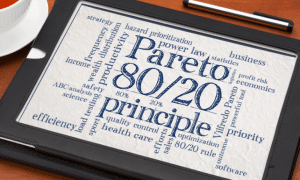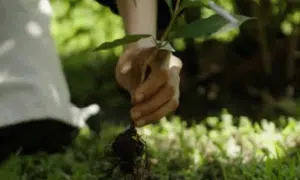In helping others to create the best businesses possible, one key ingredient for high levels of success (as I preach to my clients), is radical responsibility. The following is a story about how I recently failed to do just that.
What does radical responsibility mean? It means accepting that you have 100% control of your choices and responses in any and every moment of your day, week and life. And because you have that level of control over your responses, you also have a massive amount of influence on the outcomes you generate. Those outcomes may not always come about in the ways you imagine or the timeframe you intend, but given the unlimited choices you have to achieve your outcomes, their achievement is arguably always achievable.
This concept is easy to understand but can start to get grey in situations where the triggering event appears to be out of your control. This is particularly true when attempting to keep your cool in stressful situations, or remaining level-headed in heated conversations loaded with (what you perceive to be) untrue accusations.
I recently had the gift of experiencing the latter. And, after days of reflection, my immediate response to the event floored me.
After having a disagreement with someone in my life, I managed to develop a story that completely justified my response and pointed blame (or at least 80% of it) on the other person involved. Now, if you ask most people, I’m pretty sure they will tell you I am a person that does take personal responsibility for my life and outcomes. And given I am the guy who helps others do the same to grow their businesses, I pride myself on walking the talk. My self-identity is a person who takes 100% responsibility. And that was part of the problem. Because I was so sure of myself, I was blind to the reality.
And it got worse. Perhaps, deep down I knew the story I was telling myself was not based in truth, I don’t know, but I subsequently looked for some ‘sounding boards’ to make sure I was not missing something. Yet, upon reflection, the ‘sounding boards’ I chose were people who I knew would take my side. When explaining the situation, my language made it appear like I was taking responsibility but truthfully, I flavoured it (unconsciously) in a way that the response I always got from them was ‘it sounds like you are doing the right thing’ which further justified and supported my story. A sure danger sign that I willingly ignored.
I don’t know why I did this, but some days later I called another ‘sounding board.’ But this one was different. Perhaps I was now ready to find the truth. Brad is also a business coach, and our relationship is such that we hold each other to the highest standard in the toughest of times (and we’ve both been through a few). We never let each other off the hook. So, how do you think this call went?
Brad asked a few probing questions and reflected back some of the things I was saying and in short, gave me the lens of radical responsibility. What I saw was enlightening. The truth was that regardless of the other person’s behaviour (of which I have no control) I always have control over the story I tell myself, and subsequently, my emotional response.
While the other person’s behaviour had triggered anger within me, that trigger was mine to own. My ego did not want to admit this, nor did it want to accept that I needed to do some work and look at myself.
So here’s what happened:
When I next met up with this person, there was hostility in the air. I took a deep breath and reminded myself of the decision I had made to take radical responsibility. I reminded myself that I have complete control over how I handle this and how I handle this will have a massive impact on the outcome. I knew I wanted a great relationship with this person, so I needed to stay focused on that and park my ego. The long-term relationship was way more important than the short-term fix of feeding my ego with the need to be ‘right’ (which was always in question anyway).
That first conversation went was something like this:
Me – “We don’t need to talk in depth about what happened if you don’t want to but I do want to share some reflection I’ve had over the past week. I see now that the response I chose in the moment was not fair. And the things you had said to me that fuelled my response do have truth in them. I can see now that I had created stories in my mind that made me feel justified in my behaviour and put me in the ‘right.’ While your behaviour had triggered a response in me, that is my trigger to own. Your behaviour is not the issue here. You have my word that I am now conscious of what happened in me and am committed to working on it. I also apologise for hurting you, which I have clearly done. That was never my intention.”
Them – “Thank you for that but I’m not innocent either.”
Me – “That is for you to judge. All I know is what I need to own and work on.”
It took a lot of work to get me to the point where I was not concerned about trying to change the other person’s behaviour. Before this incident, I really felt it needed to change. The work I did in the week between the event and the reconciliation allowed me to let go of that need and just focus on what was going on inside my own head. The decision to do this was relieving and energising. I no longer had the pressure to try and change something that I could not control.
This situation is still current for me so I can’t tell you how it ends. What I do know is that communication moving forward will be completely different because now instead of needing the other person to be a certain way so I can stay in control emotionally, I am conscious to the fact that I hold the power over my emotions. It may need some different tactics from time to time to get the result I want, but that is still all within my control and I know the next interaction with this person will hold a completely different energy.
I recently had a conversation with a good friend, and we were philosophising over the concept of being comfortable with uncertainty. and the danger of certainty in some situations. My recent experience speaks to that. When I was certain on my story, it prevented self-awareness.
Always be willing to ask “how am I contributing to this?” “What don’t I see or know?”, “What am I assuming to be true that may not be?”
To finish up with some practical tools, the best reading I’ve done on this subject is a book called ‘Crucial Conversations.’ Having the tools is helpful, but having the ability to park your ego is also sometimes the greatest challenge. I know it is for me.
Good luck.

Striking a Chord with Success: The Steve Vai Theory Merging Skill & Creativity in Perfect Harmony
Master the Basics, and Innovate Like a Rockstar!



